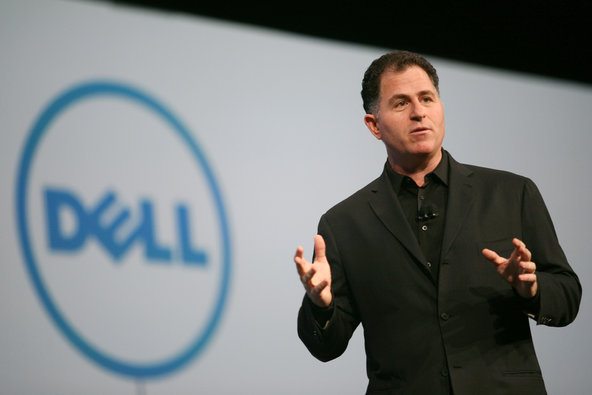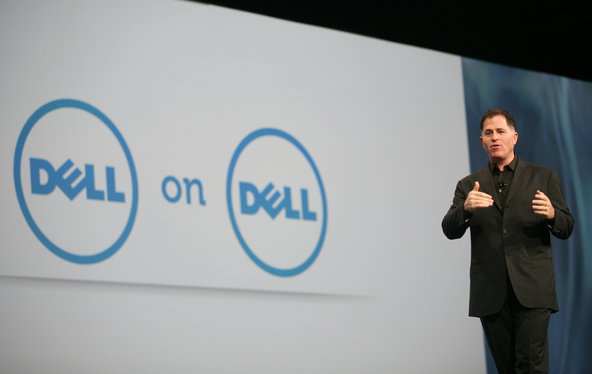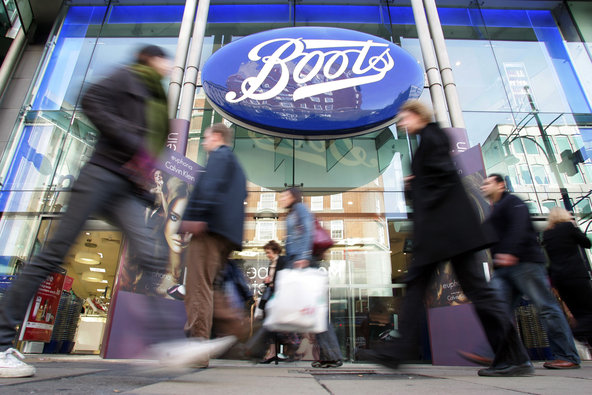 Kimihiro Hoshino/Agence France-Presse — Getty ImagesMichael S. Dell, founder of the computer company that bears his name.
Kimihiro Hoshino/Agence France-Presse — Getty ImagesMichael S. Dell, founder of the computer company that bears his name.
9:21 p.m. | Updated
Dell bought itself six more days to win backing for its proposed $24.4 billion sale to its founder, but the fight for additional support remained tough.
On Thursday, Dell, the computer maker, adjourned a meeting for shareholders to vote on the deal only minutes after opening the gathering. The vote is now scheduled for July 24 at 6 p.m.
Thursday’s decision, which many had expected, prolongs the drama surrounding the former giant of the personal computer industry. Dell has been shrouded in uncertainty for several months, as investors have questioned whether the $13.65-a-share bid by Michael S. Dell and the investment firm Silver Lake would succeed.
The meeting was adjourned after preliminary tallies showed that the deal would almost certainly have been defeated. With more time, a committee of Dell’s board and the company’s proposed buyers will try to twist more arms.
The two groups have already made headway. On Wednesday night, a number of big institutional investors switched their votes to “yes,” people who had been briefed on the matter said. Those investors included big asset managers like the Vanguard Group, BlackRock, the State Street Corporation, the Bank of New York Mellon and Invesco.
For the votes already cast, the race looks like a dead heat, one of these people said. But an estimated 23 percent of Dell votes have not been cast, effectively counting as no votes. And any votes can be changed before the new shareholder meeting, meaning that the landscape may change yet again.
The bar for approving the deal is high. More than 42 percent of Dell’s shares would have to be cast in favor of the deal. The billionaire Carl C. Icahn and Southeastern Asset Management, who have proposed an alternative to the leveraged buyout, together own almost 12.7 percent.
“It is unfortunate, although not surprising, that Dell’s board and special committee have delayed the date of the special meeting at which stockholders can vote on the Michael Dell/Silver Lake freeze out transaction,” Mr. Icahn and Southeastern said in a statement. “We believe that this delay reflects the unhappiness of Dell stockholders with the Michael Dell/Silver Lake offer, which we believe substantially undervalues the company.”
Instead, Mr. Icahn and Southeastern have proposed that the company buy back 1.1 billion shares for $14 each, and offer warrants to buy additional shares for $20 each. The two investors valued their plan at $15.50 to $18. But the committee of Dell’s board rejected the idea as too risky and not in the best interests of other shareholders.
Both sides have argued that Dell must continue to move away from personal computer manufacturing, which once propelled its profits but now weighs down its prospects. The embattled business is trying to build a more profitable corporate software and services operation.
But Mr. Dell and Silver Lake argue that such a transformation can only succeed if carried out in private, away from analysts and public investors. Mr. Icahn and Southeastern dismiss that contention, while arguing that the current offer is too low.
Many investors appear to hope that the prospect of defeat will force Mr. Dell into raising the bid. He acquiesced before, increasing the purchase price to its current level from $13.60.
The committee will try to persuade the bidders in raise their price again, the people briefed on the matter said. But people close to Mr. Dell and Silver Lake insist that no such increase is coming, given the declining financial health of the company and the overall weakness of the personal computer industry.
If that is the case, the Dell committee will likely seek a letter from Mr. Dell and Silver Lake confirming that $13.65 a share is their best-and-final offer, erasing any illusions about an increase. Shares in Dell rose 1.9 percent on Thursday, to $13.12, suggesting that investors feel somewhat more optimistic that the buyout will succeed.
Article source: http://dealbook.nytimes.com/2013/07/18/dell-deal-said-to-lack-enough-votes-for-approval-but-big-investors-start-to-turn/?partner=rss&emc=rss


